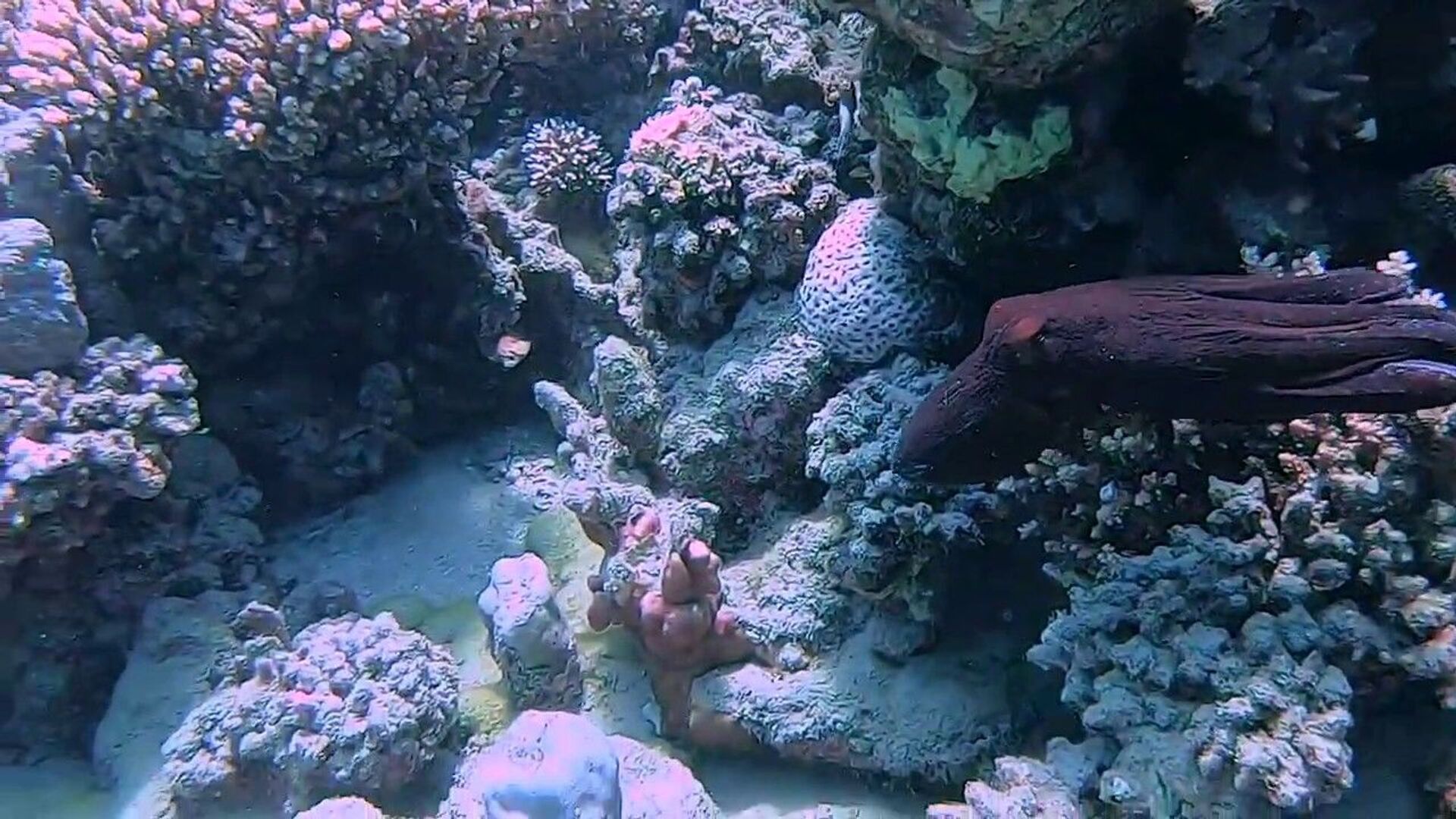https://sputnikglobe.com/20221126/study-human-and-octopus-brains-turn-out-to-be-surprisingly-similar-1104719874.html
Study: Human and Octopus Brains Turn Out to Be Surprisingly Similar
Study: Human and Octopus Brains Turn Out to Be Surprisingly Similar
Sputnik International
While the ocean still holds many mysteries, some sea creatures, octopuses in particular, turn out to be rather similar to us in a number of ways. 26.11.2022, Sputnik International
2022-11-26T10:34+0000
2022-11-26T10:34+0000
2022-11-26T10:34+0000
science & tech
octopus
brain
rna
https://cdn1.img.sputnikglobe.com/img/107972/66/1079726600_0:0:1280:720_1920x0_80_0_0_2b97b36638c361fcaea4e31c74d35e36.jpg
A team of scientists, with systems biologist Nikolaus Rajewsky of the Max-Delbrück-Center for Molecular Medicine as the lead author, has found a trait that octopus brains share with humans: a vast repertoire of microRNA in their neural tissue.Soft-bodied cephalopods such as octopuses (invertebrates) are exceptionally intelligent with a highly complex distributed nervous system and they evolved independently from vertebrates.A complex nervous system and intelligence are relatively common traits in vertebrates, but are rare among invertebrates.Cephalopods' ability to rapidly edit their RNA sequences on the fly in order to adapt to their environment is yet another surprise, as adaptation normally starts with the DNA, and those changes are passed on to the RNA. This prompted Rajewsky to wonder what other RNA secrets octopuses might be hiding.The team sequenced RNA from 18 samples obtained from dead octopuses of different species. This sequencing provided a profile of the messenger RNA and the small RNA therein. The results were surprising: RNA editing was going on in unexpected areas.The team found 164 microRNA genes grouped into 138 microRNA families in the common octopus. These numbers are on par with those of animals such as chickens and frogs (the human genome encodes around 2,600 mature microRNAs). 42 of the families were new, mostly in the brain and neural tissue.MicroRNAs are themselves non-coding RNA molecules that are heavily involved in regulating gene expression, binding to larger RNA molecules to help cells fine-tune the proteins they create.The discovery of those microRNA families indicates that they still play a role in octopus biology, although the scientists don't yet know what that role is, or which cells the miRNAs are involved with.The scientists plan to try to figure out exactly what those microRNAs are doing in future studies.
Sputnik International
feedback@sputniknews.com
+74956456601
MIA „Rossiya Segodnya“
2022
News
en_EN
Sputnik International
feedback@sputniknews.com
+74956456601
MIA „Rossiya Segodnya“
Sputnik International
feedback@sputniknews.com
+74956456601
MIA „Rossiya Segodnya“
octopus brain, human brain, microrna, science discovery
octopus brain, human brain, microrna, science discovery
Study: Human and Octopus Brains Turn Out to Be Surprisingly Similar
While the ocean still holds many mysteries, some sea creatures, octopuses in particular, turn out to be rather similar to us in a number of ways.
A team of scientists, with systems biologist Nikolaus Rajewsky of the Max-Delbrück-Center for Molecular Medicine as the lead author, has found a trait that octopus brains share with humans: a vast repertoire of microRNA in their neural tissue.
"This," Rajewsky says, "is what connects us to the octopus!"
Soft-bodied cephalopods such as octopuses (invertebrates) are exceptionally intelligent with a highly complex distributed nervous system and they evolved independently from vertebrates.
A complex nervous system and intelligence are relatively common traits in vertebrates, but are rare among invertebrates.
Cephalopods' ability to rapidly
edit their RNA sequences on the fly in order to adapt to their environment is yet another surprise, as adaptation normally starts with the DNA, and those changes are passed on to the RNA. This prompted Rajewsky to wonder what other RNA secrets octopuses might be hiding.
The team sequenced RNA from 18 samples obtained from dead octopuses of different species. This sequencing provided a profile of the messenger RNA and the small RNA therein. The results were surprising: RNA editing was going on in unexpected areas.
The team found 164 microRNA genes grouped into 138 microRNA families in the common octopus. These numbers are on par with those of animals such as chickens and frogs (the human genome encodes around 2,600 mature microRNAs). 42 of the families were new, mostly in the brain and neural tissue.
"This is the third-largest expansion of microRNA families in the animal world, and the largest outside of vertebrates," says biologist Grygoriy Zolotarov, researcher at the Centre for Genomic Regulation in Spain.
MicroRNAs are themselves non-coding RNA molecules that are heavily involved in regulating gene expression, binding to larger RNA molecules to help cells fine-tune the proteins they create.
The discovery of those microRNA families indicates that they still play a role in octopus biology, although the scientists don't yet know what that role is, or which cells the miRNAs are involved with.
The researchers suggest that "mi[cro]RNAs and, perhaps, their specialized neuronal functions are deeply linked and possibly required for the emergence of complex brains in animals".
The scientists plan to try to figure out exactly what those microRNAs are doing in future studies.

